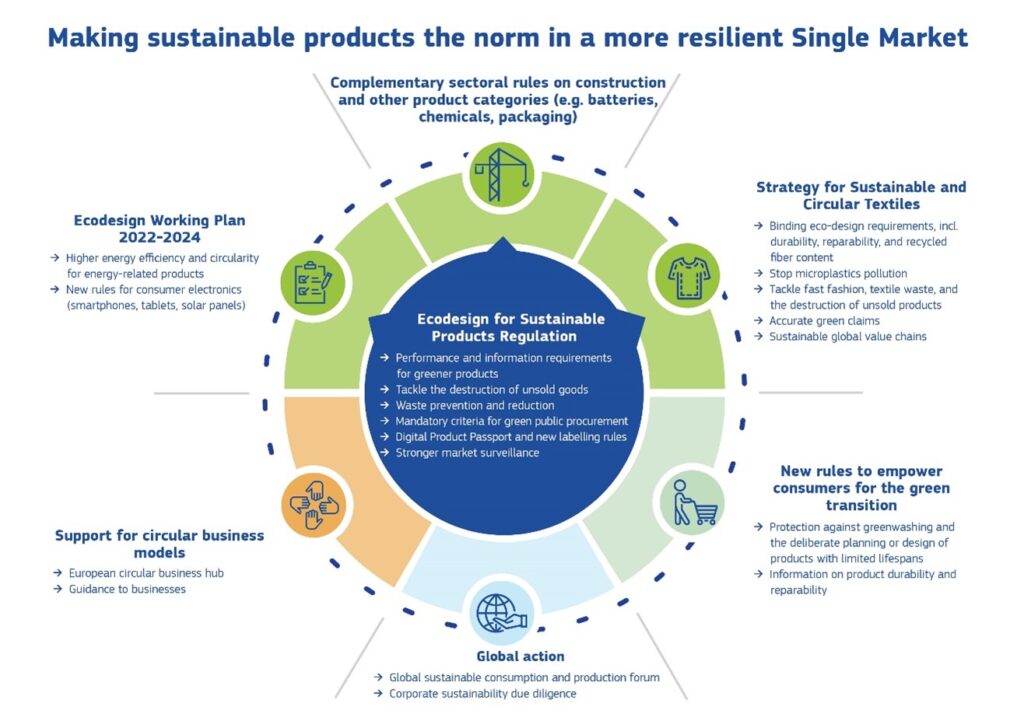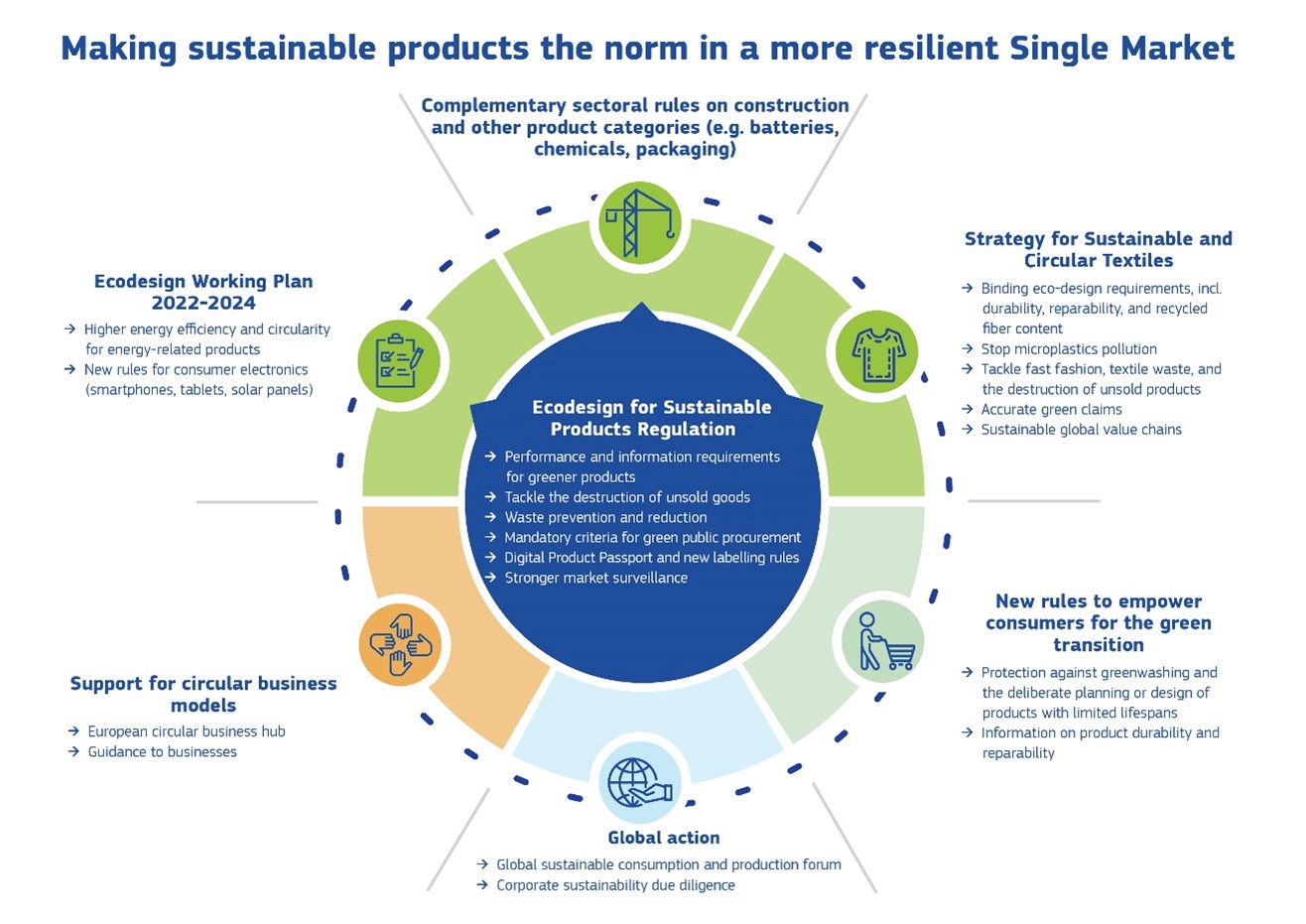Product design determines up to 80% of a product’s lifecycle environmental impact. Therefore, the European Commission addresses the design stage and aims to make sustainable products the norm in the EU.
The 2022 Commission proposal for Ecodesign for Sustainable Products Regulation (ESPR) sets new requirements to make products more durable, reliable, reusable, upgradable, reparable, easier to maintain, refurbish and recycle, and energy and resource efficient.
The ESPR will also enable the EU to set labelling requirements, for example on the reparability of products. The new EU Energy Labels will incorporate circularity aspects, such as a repair score, by means of supplementary information. Furthermore, product-specific information requirements will allow consumers to know the environmental impacts of their purchases.
All regulated products will have Digital Product Passports enabling products to be tagged, identified and linked to data relevant to their circularity. This will facilitate repair or recycle products as well as tracking substances of concern along the supply chain. Labelling can be introduced as well.
The 2022 regulation extends the existing Ecodesign framework in two ways:
- it covers the broadest possible range of products;
- it broadens the scope of the requirements with which products are to comply.

Lessons:
Evaluations of the 2009 Ecodesign Directive by the Commission concluded that it helped improving energy efficiency of products, but also identified a number of limitations.
Limitations included:
- the directive’s focus on energy-related products only
- in spite of the possibility stated in the directive to set up other requirements related to environmental aspects this has mostly not been taken up in product-specific implementing acts
- missing overarching EU legislative framework for sustainable production and consumption of all products.
The Commission will develop new methodologies to underpin the additional circularity aspects brought under the ESPR, including e.g. durability, reparability and recycled content related methodologies, also taking into account research results of projects funded by the Horizon Europe Programme.
Framework contributing to the Circular Economy
Further Steps:
In order to ensure a smooth transition to the ESPR framework, the new ecodesign and energy labelling working plan for 2022-2024 is adopted as part of this package. Importantly, the new working plan ensures that circularity aspects are increasingly addressed to the extent feasible under the current legal framework.
To support the deployment of sustainable products across the EU market, the Commission tackles consumption and presented targeted sectoral initiatives: The EU Strategy for Sustainable and Circular Textiles and the revision of the Construction Products Regulation will address two priority product groups with significant impacts. To stimulate demand for environmentally sustainable products, the ESPR aims to set mandatory criteria for the public procurement for specific groups of products. In addition the Commission proposed to o amend the Consumer Rights Directive to oblige traders to provide consumers with information on products’ durability and reparability.
For more information consult:
amended Regulation (EU) 2019/1020 and repealing Regulation (EU) 305/2011
EU strategy for sustainable and circular textiles
New Consumer Agenda
Factsheet on Textiles Strategy
Factsheet on Construction materials
Factsheet on Empowering consumers

Measures supporting circular design of all products were first announced in the 2019 European Green Deal, as part of the efforts to turn the EU into a resource-efficient, net zero emissions economy by 2050.

